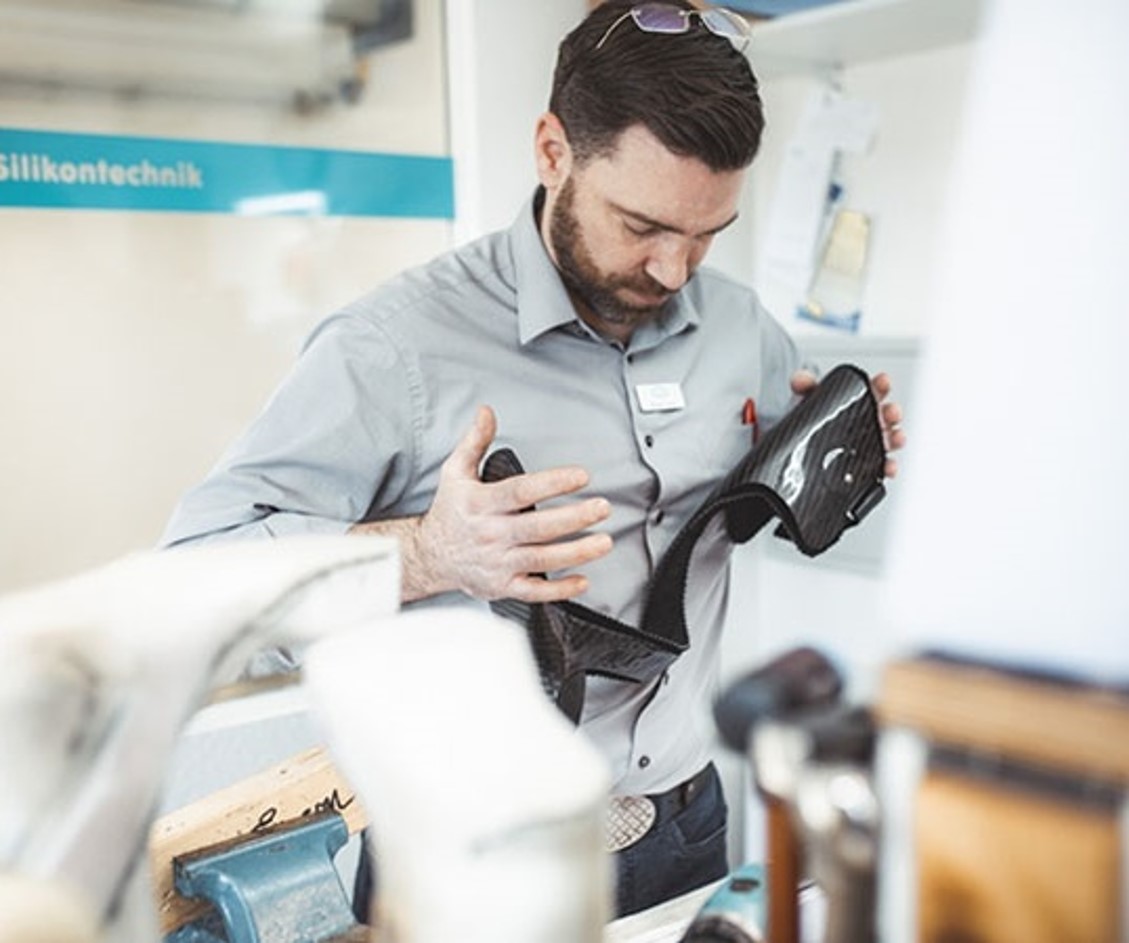Customizable Prosthetics and Orthotics through Vitrimers Based on Benzoxazines
The individual production of prosthetics and orthotics is a complex process. These orthopedic devices must fit perfectly to avoid pain or discomfort for patients. However, conventional fiber-reinforced composites allow for little adjustment after the resin is cured. A novel fiber-reinforced polymer developed by Fraunhofer IFAM in collaboration with other partners in the "CFKadapt" project could provide a solution. This material is based on a dynamic polymer network and can be adapted in various ways to pressure points and physiological changes. As a result, the need to produce a new prosthesis, which takes several months, could be eliminated in the future.
The versatility of vitrimers based on benzoxazine opens up exciting new possibilities in orthopedic technology. The crucial difference from conventional matrix systems for fiber-reinforced orthopedic aids is the ability to adapt the new material to the patient's individual pressure or support points without damaging the material, such as through grinding. The multiple reshaping capability ensures continuous adaptation to the changing needs of the patient throughout treatment, potentially enhancing therapeutic outcomes. The reshaping process is relatively user-friendly and does not require special equipment or machinery. The fiber-reinforced composite, consisting of reinforcement fiber and the dynamic polymer matrix, can be locally heated and manually molded, offering tremendous degrees of freedom in design and configuration.
Additional Advantages of the New Material Technology: Sustainability and Durability in Terms of Circular Economy
Other advantages of this new material lie in the special properties of vitrimers, such as repairability, recyclability, and reusability, making them a sustainable material option in the circular economy. This results in a significant reduction of waste during production and a longer lifespan of the aids due to the possibility of continuous adjustment. For patients, this means they can receive a customized orthopedic solution more quickly.
Furthermore, a standardized production of fiber-reinforced semi-finished products with subsequent individual manufacturing and adaptation is possible. The storage-stable composite material can reduce manufacturing costs and time and improve the efficiency of the production process. The innovative technology promises to revolutionize the customization of prosthetics and orthotics, significantly enhancing patient comfort and treatment quality.
Future Prospects and Application Areas
The special properties of the newly developed polymer also open up prospects beyond orthopedics. Potential applications can be found in other areas of medical technology, as well as in the automotive industry, aerospace, and sports and leisure sectors. The ability to dynamically adjust and model materials could be of great benefit in many industries that rely on lightweight yet robust materials.
 Fraunhofer Institute for Manufacturing Technology and Advanced Materials IFAM
Fraunhofer Institute for Manufacturing Technology and Advanced Materials IFAM